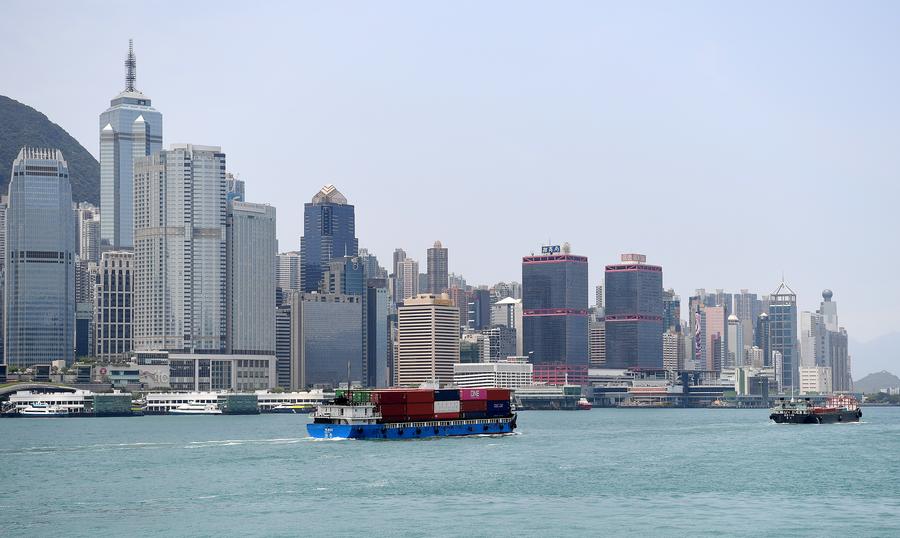
Commercial banks based in Hong Kong conducted their respective trades of renminbi bond repurchase (repo) transactions in the offshore market in a move to promote cross-border financial innovation and collaboration, opening up the Chinese mainland’s capital market further, bolstering renminbi internationalization and fortifying Hong Kong’s position as a global offshore renminbi business hub and risk management center.
From Monday, global investors can utilize their purchased onshore bonds through Northbound Bond Connect as collateral to conduct repo transactions in the offshore market for the first time. The new arrangement is part of a slate of policy measures unveiled last month by the People’s Bank of China and the Hong Kong Monetary Authority to deepen cross-border financial connectivity.
ALSO READ: HK to establish yuan finance program, expand market connectivity
The Hongkong and Shanghai Banking Corporation said the measure unlocks a range of financing and liquidity management solutions for offshore investors in the world’s second-largest fixed income market.
“The strong interest from investors highlights Hong Kong’s pivotal role both in deepening the Chinese mainland’s capital markets and in making them more accessible to global participants,” said William Shek, Hong Kong head of markets and securities services at HSBC.
“The milestone arrangement supports the development of a market-driven framework for offshore renminbi liquidity management, ultimately strengthening Hong Kong’s position as a leading offshore renminbi hub,” said Liz Chow, head of global markets at HSBC Holdings’ subsidiary, Hang Seng Bank Ltd.
READ MORE: PBOC to issue bills worth 60b yuan in Hong Kong
A repo is a short-term borrowing transaction to sell securities and repurchase them later at a slightly higher price. The seller obtains funds at lower rates, while the buyer gains an attractive yield from the collateral, typically in the form of short-term secured and liquid instruments.
Overseas investors can benefit from the measure by having more non-cash collateral options, thus increasing their funding flexibility and further improving the market-based arrangement mechanism for offshore renminbi liquidity.

Dymon Asia and Guotai Junan International are two of the many global clients that have settled their repo transactions.
“The program allows investors to optimize cash management and enhance collateral efficiencies,” Dymon Asia Co-Chief Investment Officer Shawn Yuan said.
ALSO READ: Finance Ministry to issue 12.5 billion yuan of treasury bonds in HK
Guotai Junan International said the program provides overseas investors with an important financing tool by increasing the usage of onshore renminbi bonds in the collateral markets.
This financial market enhancement measure also plays a key role in promoting renminbi internationalization.
“The enhancement will further increase the collateral function and application of onshore renminbi-denominated assets in the international financial market, thereby increasing the interest of overseas institutional investors in investing in renminbi assets,” Bank of China (Hong Kong) Deputy Chief Executive Wang Huabin said.
Jimmy Jim, managing executive director and head of global markets department at ICBC (Asia), said this innovative arrangement will significantly enhance the investment value and liquidity of onshore renminbi bonds that will provide strong momentum for the internationalization of bonds and the financial market in the Chinese mainland.
READ MORE: Regulator: Corporate governance key to HK’s financial center role
“This will accelerate the integration and synergistic development between the Chinese mainland’s and Hong Kong’s financial markets,” Jim added.
Since the launch of the Bond Connect in July 2017, foreign investors’ holdings of onshore mainland bonds have surged 4.7 times to 4.16 trillion yuan ($569 billion) as of 2024, according to HSBC data.


